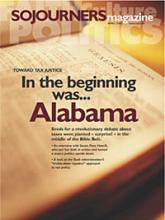In the past 20 years, more than a million people in Brazil have participated in the most vibrant, well-organized, and far-reaching grassroots association in Latin America, the Landless Workers' Movement. In a country of profound economic disparity and poverty, the movement has emerged as a significant force for agrarian reform, as well as progress in education, health care, agricultural production, promotion of women's rights, and democratic participation.
According to the Brazilian Constitution, any piece of unused land larger than around 500 acres should be taken or bought by the government and distributed to landless families. Since this rarely happens, the Landless Workers' Movement organizes people to occupy those lands and to force the government to do its job. Their actions are almost always successful.
Brazil is a nation of deep social inequalities - the wealthiest 20 percent of the population collects 34 times as much income as the poorest 20 percent, and approximately 55 million people live on less than $2 a day. These disparities are rooted in centuries of Portuguese imperial rule, under which huge tracts of land were given away to court favorites. Landowners were unable to farm much of the area even though Brazil imported more African slaves than any other country in the Western Hemisphere.
During the 20th century, despite a "squatters' rights" legal principle and a constitutional affirmation that land must "serve its social function," vast swaths of property went uncultivated. Brazilians began to take steps toward reclaiming their rights in the 1970s, during the struggle against the military government that ruled until 1985.
Read the Full Article

